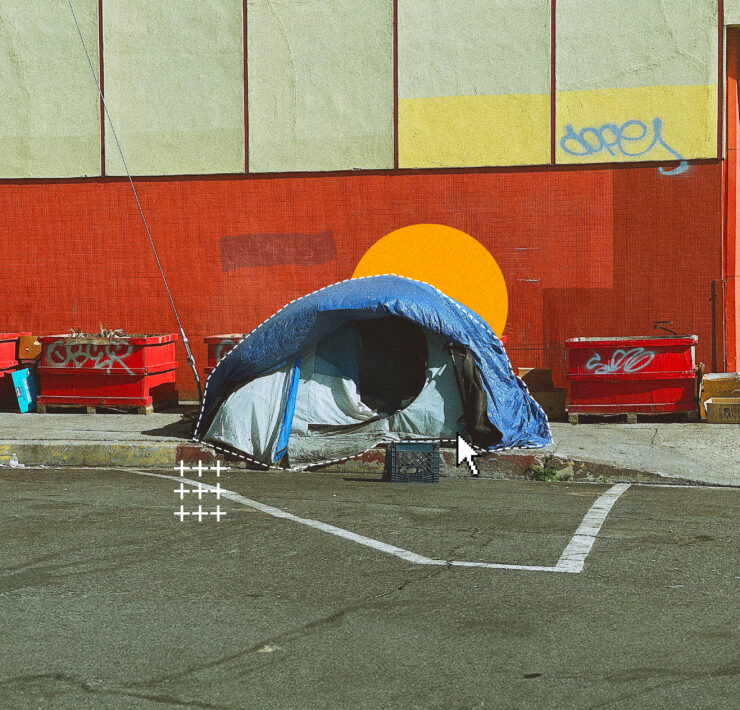The single largest question I get when talking to people about modern slavery is this: “But how can I really help?”
The problem feels both far away, incredibly complicated, and too large to make a dent in. The latest data estimates 45.8 million people are in modern slavery today worldwide, and impacting change in such a lucrative and exploitative system of oppression feels a bit like fighting the Transatlantic Slave Trade of the 1800’s. It might just feel as difficult as fighting slavery actually would.
And, unfortunately, the average American consumer can play a significant role in the demand for slave labor without even realizing it in the products they purchase.
When Exodus Road first began this work in intervention, my husband who worked as an undercover operative overseas came home one night discouraged. He was actively working with the police to locate minors caught in sex slavery, and had witnessed a particularly gut-wrenching night.
We talked about quitting. The risks—to our safety, to our mental health, to our marriage—seemed too high. We didn’t have the answers for how we would handle what might come down the pike at us next.
But then we thought about the 14-year-old farmer’s daughter who thought she was taking a job in a restaurant, was deceived by a corrupt system, and who was now held under the thumb of a pimp, forced to sleep with five or more older men a night in some seedy brothel. We thought about what she would say to us, to our excuses and our doubts about what abolition might cost us.
We thought she’d probably look at us and say, “Come and find me. Help me. Fight for me. I don’t care what it might costs or how. Figure it out.”
Figure it out.
And it’s what I would say to you, as well. If you want a free world for our kids, if you want to stand with the literal slaves today against oppression, figure it out.
It doesn’t have to be dramatic, but it will require action. From all of us.
Here’s where you can start:
1. Learn about it.
It may seem simple, but modern slavery is an issue which few people really understand. Spend time (even just looking through the links embedded in this article) online reading stories from the front lines and studying reputable reports. You may want to start at the Global Slavery Index or the U.S. TIP (Trafficking in Persons) Report. Read a book or two about the issue. Watch a video from a survivor. Get some skin in the game and stare the issue in the face. Let the stories of others bring humanity to this otherwise complex and laborious issue.
2. Connect on social media.
I once had someone tell me, “Laura, I can’t forget about this issue because I follow you on Facebook and you won’t let me forget.” Research and choose five (or more) anti-trafficking organizations with strong social media content to follow. When something’s in your feed about slavery and it grabs your attention, share it with your online tribe. Add a personal message about why you care. You’re sitting in front of a “digital congregation” — use that influence to remind them about the things that matter.
3. Give money.
It’s not the abolition action people want to hear, but it is a practical and effective way to engage in counter-trafficking work. Fund nonprofits that work towards prevention, intervention, or after care. Look up the organization’s financials to ensure a quality charity. Be sure to see that they have a sustainable model in place to effect long-term change, especially equipping nationals if it’s overseas, and then give sacrificially. Charities need monthly donations especially, so consider joining the fight on a consistent basis with your wallet.
4. Consider foster care or support for at-risk kids.
A majority of U.S. minors who find themselves victims of sex trafficking come from broken homes or are runaways. 1 in 6 endangered runaways are likely trafficked for sex, and approximately 68% of those sex trafficking survivors were in the care of social services or foster care when they ran away (National Center for Missing and Exploited Children). The strongest prevention tool against trafficking has always been a strong, safe family. Passionate about abolition in your own backyard? Look around for the most at-risk kids in your community and then figure out a way to support, or even foster, them.
5. Buy fair trade every chance you get.
Yes, I know it’ll cost more. But slavery costs too; it’s just that you’re demanding someone else pay the price. Recognize that men are enslaved on fishing boats to farm shrimp, kids are harvesting chocolate, and that factory workers in China are not being paid for the stuff you’re buying on the cheap at your local discount store. It may feel small, but the power of the almighty dollar is a strong weapon for change. Wield it. (And with the holidays coming up? For the love, purchase with purpose. There are so many fantastic organizations empowering the vulnerable, support them with your gifts this year.)
6. Volunteer locally.
Research local counter-trafficking nonprofits and volunteer. Stuff envelopes, clean offices, donate your professional services. Bring their staff lunch to encourage them. Show up when they ask for help. If there’s one thing I know about most charities, they are typically understaffed and underfunded. Find one you like, and dig in and serve. Can’t find one locally? Lots of organizations will have volunteer opportunities remotely, as well.
7. Participate in Human Trafficking Awareness Month in January.
Decide to host an awareness or fundraising campaign in January, the designated Global Human Trafficking Awareness Month. Host a dinner party and show a movie about trafficking. Launch an online crowdfunding campaign for your favorite charity. Organize a spaghetti dinner or carwash with the students at your church. It’s a prime time every year to stop and do something creative in a month that is already getting global attention around the issue.
8. Use your voice.
Our officials listen when we log complaints or ask targeted questions. Use the power of democracy and write a simple letter or make a quick phone call to your state Senator, Legislators, or others. Let them know that human trafficking is an important issue to you and ask them how they are working to fight it in your state or community. You can find out who to contact by going here.
9. Stop trafficking efforts in your local community.
If you happen to suspect a trafficking situation in your own area, be sure to go online or call the National Human Trafficking Hotline at 1-888-373-7888. Seriously, stop right now and put the number in your phone. You can report a completely confidential tip and access an advocate 24/7. Interpretation is available. In immediate danger, always call 911 first.
10. Find your puzzle piece.
Everyone has a piece of the puzzle to help build a free world, and each person’s puzzle piece will look different. We humans are phenomenally creative beings who have solved impossible problems and overcome incredible odds. We can do that, again, with slavery. Injustices worth fighting often don’t have formulas that fit all advocates. So, move forward and find yours. If you’re sincerely looking for a way to effectively help, you’ll find one.
























